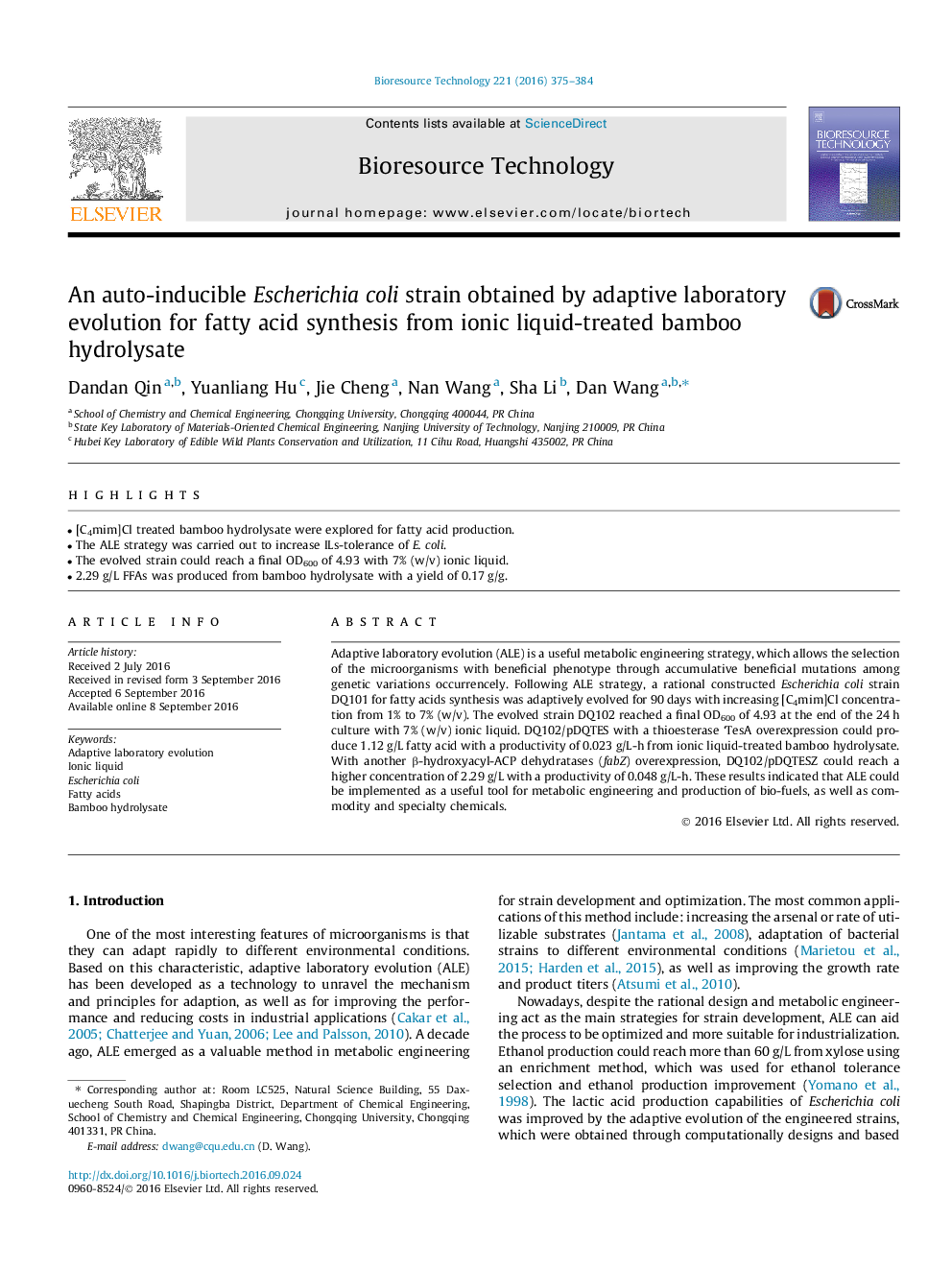| Article ID | Journal | Published Year | Pages | File Type |
|---|---|---|---|---|
| 4998090 | Bioresource Technology | 2016 | 10 Pages |
â¢[C4mim]Cl treated bamboo hydrolysate were explored for fatty acid production.â¢The ALE strategy was carried out to increase ILs-tolerance of E. coli.â¢The evolved strain could reach a final OD600 of 4.93 with 7% (w/v) ionic liquid.â¢2.29 g/L FFAs was produced from bamboo hydrolysate with a yield of 0.17 g/g.
Adaptive laboratory evolution (ALE) is a useful metabolic engineering strategy, which allows the selection of the microorganisms with beneficial phenotype through accumulative beneficial mutations among genetic variations occurrencely. Following ALE strategy, a rational constructed Escherichia coli strain DQ101 for fatty acids synthesis was adaptively evolved for 90 days with increasing [C4mim]Cl concentration from 1% to 7% (w/v). The evolved strain DQ102 reached a final OD600 of 4.93 at the end of the 24 h culture with 7% (w/v) ionic liquid. DQ102/pDQTES with a thioesterase 'TesA overexpression could produce 1.12 g/L fatty acid with a productivity of 0.023 g/L-h from ionic liquid-treated bamboo hydrolysate. With another β-hydroxyacyl-ACP dehydratases (fabZ) overexpression, DQ102/pDQTESZ could reach a higher concentration of 2.29 g/L with a productivity of 0.048 g/L-h. These results indicated that ALE could be implemented as a useful tool for metabolic engineering and production of bio-fuels, as well as commodity and specialty chemicals.
